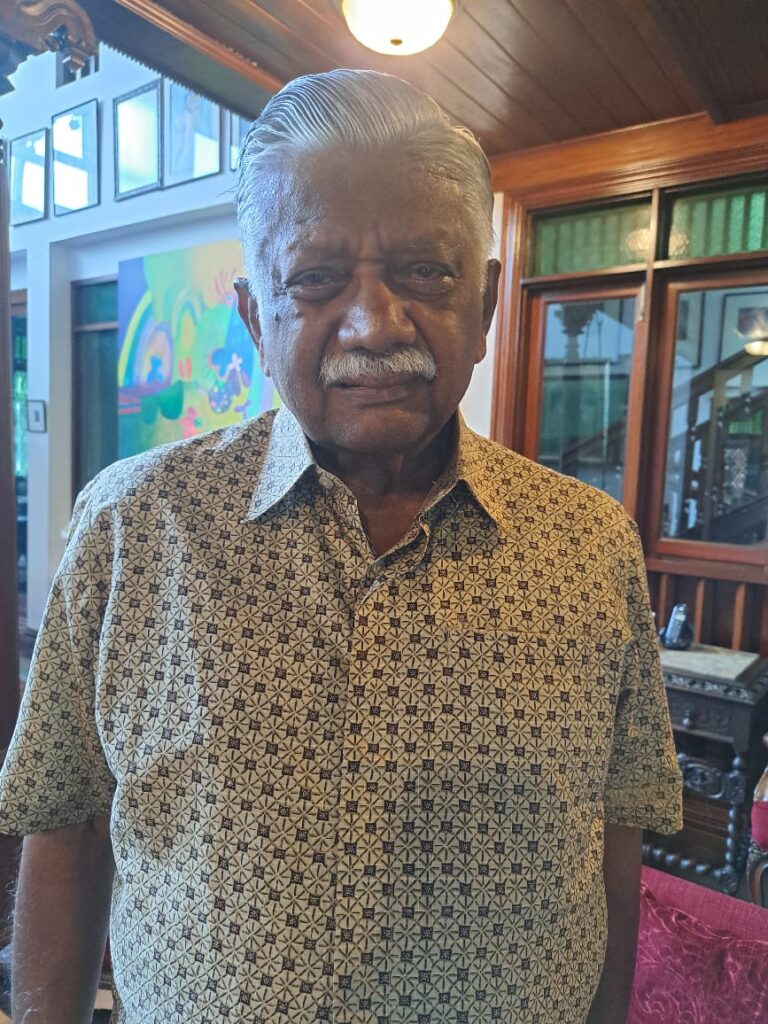
University Socialist Club member, 1956 to 1960;
Research Secretary and Publications Secretary, 1958-59.
A teenager of sixteen by the end of the Second World, my reflections and perspective start with the fast-emerging New World Order. There was an air of economic, social, and political uncertainties for the ordinary people. Western Imperialism’s use of the atom bomb on Hiroshima and Nagasaki horrified me. The defeat of Nazi Germany and its allies curbed the spread of fascism and totalitarianism and saw the rise of the United States of America, rooted in liberal free-market capitalism and the Soviet Union, based on Marxist-Leninist socialist doctrines and the state-driven economy.
After the Second World War, the declining Imperial Britain which for over a century took great pride of her empire was forced to relinquish her rule over her possessions in South Asia.
Radical leaders in Africa, the Caribbean and Southeast Asia backed by mass support were calling for an end to colonial rule as well. In British Malaya and Singapore, following the Japanese surrender in August 1945, it was organized labour solidarity that was in the forefront in the mass resistance against colonial rule and exploitation. The anti-colonial movement backed by the labour movements and student bodies fought for free and stable democratic government and better economic opportunities.
Apart also from the Malay nationalists and Chinese student movements, the University of Malaya Socialist Club (USC) too was in the forefront of the nationalist anti-colonial movement. Fajar, meaning ‘Dawn’ in Arabic, was the organ of Socialist Club The most notable among the USC students were Abdullah Majid, M. K. Rajakumar, Poh Soo Kai, James Puthucheary, Sandrasegeram (Sidney) Woodhull, Jamit Singh, Wang Gungwu, Philomen Oorjitham, Linda Chen, Lim Hock Siew, A. Mahadeva, Kwa Boo Sun, Lam Khuan Kit, Albert Lim Shee Ping, Thomas Varkey and P. Arudsothy. As M.K. Rajakumar pointed out, the British found on their return as rulers that “This generation was no longer willing to accept a subservient role. The young men and women who entered Raffles College and the King Edward VII College of Medicine had lived in the raw and matured beyond their years. They would take no nonsense from anybody.” The University of Malaya Socialist Club was formed in 1953. The student activists ranged from those adhering to the reformist marque of Fabian socialism and the rising European social-democratic theories to the more radical brand of scientific socialism and Marxism.
Foremost in their agenda was the fight for national independence and democracy combined with equality and justice–social, racial, gender, and economic–as well as to disseminate democratic socialist thought and policy, political awareness, promote open discussions, exchange of ideas and activity among the student population and the public.
The British established the university more as training ground for students to be functionaries in the expanding colonial economy than as an intellectual institution, preparing them to shape the future of their country. Nevertheless, the university authorities approved the establishment of political clubs with the claim that “political discussion among students is regarded as both a normal part of university life and a specific contribution to the development of the Malayan nation on the basis of political freedom.” The left-wing centered student activities enlivened the political consciousness of university students. To blunt the impact of the activities of the Socialist Club the more right-wing Democratic Club was formed in 1964.
The Socialist Club was the more active, committed, and influential of the two. It built a close and enduring relationship with the more radical and influential Middle Road union leaders, journalists, and some of the then more progressive leaders of the People’s Action Party (PAP). In addition, the Club’s publication Fajar which propagated socialist political ideology, and the size of its public circulation became an anathema to both the colonial state and to the right-wing political and student bodies. The colonial state’s gauntlet struck on the wee hours of 28 May 1954 when eight student members of the Fajar editorial committee were arrested and charged for sedition allegedly committed in the front-page editorial “Aggression in Asia” in the Fajar issue of May 19, 1954. Co-authored by M.K. Rajakumar, Poh Soo Kai and James Puthucheary, the editorial was critical of the initiative taken by Anglo-American powers to form the Southeast Asia Treaty Organization, a brazen attempt at the continuation of imperialism in the region. The editorial rejected Malaya’s association with the western bloc and instead called on the country to traverse a non-aligned path. However, when the trial commenced three months later, the case was dismissed on 26 August 1954 without the defence being called. The students were represented by prominent Queen’s Counsel D.N. Pritt.
Fajar’s court victory was a major one at the time for the people of Singapore and Malaya. The expectation resulting from this victory was that Malaya would be a unified socialist democratic nation where liberty, social justice, a more equitable income distribution, and national solidarity prevailed.
Looking back on the 70th anniversary of the Fajar trial it is patent that our dream of a democratic and socialist Malaya has eluded us.
Nevertheless to this day, I am proud to be counted as a member of the Fajar generation for what we stood for and continue to stand for.

Leave a Reply